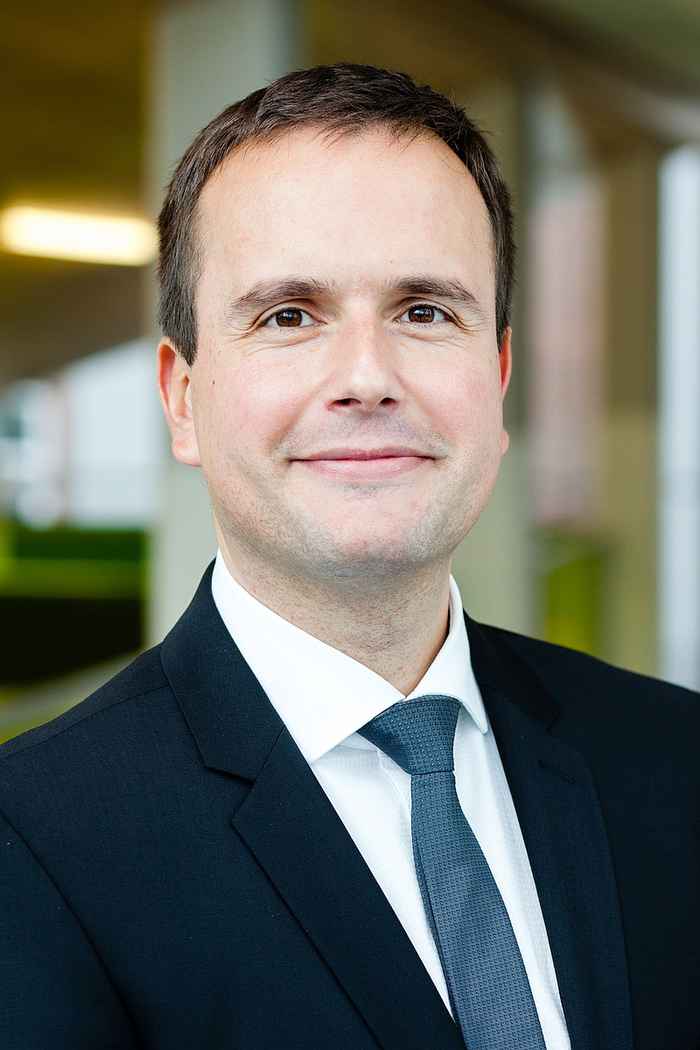Interview with UvA EB Lecturer of the Year 2021
15 June 2021

What courses are you teaching?
'I teach 2 courses in the Minor Amsterdam Data Science and Artificial Intelligence: Algorithms and Data Structures in Python, and Machine Learning. And I also teach 2 courses - Machine Learning and Deep Learning - in the MBA Big Data & Business Analytics.
How do you feel about winning the award?
'It's is a great honour! However, this wouldn’t be possible without many colleagues involved in the education process, whose enormous effort ensures that the entire operation runs smoothly. I am particularly grateful to my Teaching Assistants, our excellent PhD students, Ujjwal Sharma, Thanos Efthymiou and Georgios Sidiropoulos who have been doing a great job making sure the students get the practical knowledge and skills they need. In addition, I am very grateful to the students who have clearly been doing their best to make the study a success, despite the difficult situation caused by the ongoing COVID-19 pandemic.'
What was your first reaction when you heard you were the winner at UvA EB?
'It had been a really hectic day with back to back online meetings well into the evening. I joined the UvA Hour of Education and the award ceremony right after an EU project meeting, so it took me a few moments to switch the context. From the email invitation I understood there were almost 500 nominations at the university level, so I did not see it coming. When the Rector Magnificus read my name, I was surprised and excited at the same time, but then immediately also anxious as the thought struck me "Wait, now I’ll probably be asked to give a short speech". It was one of those nice moments that I will always remember.'
How would you describe your teaching style?
'I often hear from the students that my lectures are very dynamic, passionate and full of examples of practical applications in different domains. To better illustrate the methodologies discussed in the lectures, I frequently show the coding examples and the demos that we normally build in our research projects. I’m also very open to discussions and I encourage students to pose questions at any point during the lecture. Having such excellent teaching assistants like Ujjwal, Thanos and Georgios helps a lot as I am always confident that they will further clarify the content we’ve covered through the laptop labs. We prepare new interesting coding exercises, projects and realistic use cases for these labs every year. Finally, I try to keep the atmosphere of the lectures casual and humorous – studying should be fun!
How have you experienced the past year?
'I was very anxious before September 2020 as that was the first time for most of us to give entire courses online. I normally teach very applied/hands-on computer science and artificial intelligence courses, which are perhaps less suited for the online setting than some more theoretical subjects. However, in the first Minor Amsterdam Data Science and Artificial Intelligence course I had already noticed that the students were extremely motivated and committed to making the most of their study under very difficult circumstances. I admired their desire to understand even the tiniest details of a relatively complex machine learning algorithm, for example. And I appreciated their frequent questions and insightful discussions, which often continued well after the lecture.'
'I’m looking forward to finally getting back to the on-campus lectures in the next semester. While the online lectures, labs and meetings turned out to be a solid “emergency solution”, in my opinion they cannot replace the richness of campus experience. One thing from this period that I will try to keep in my lectures is frequent, but shorter online guest talks. Namely, the online format made it easier to invite guest speakers from academia, innovative spin-offs, local government and tech corporations. These guest speakers featured in our Deep Learning course, for example, and illustrated their work on developing and applying cutting edge technologies.
What makes you passionate about teaching?
The field of artificial intelligence, including my research interests – multimedia, information retrieval and computer vision, is very dynamic and positioned close to the practical applications. We are lucky to often be able to implement our research ideas and immediately see the outcomes in practice. I’m very enthusiastic about my research field and its increasingly important role in addressing the major societal challenges. Helping students from different educational backgrounds take their first steps in the exciting world of artificial intelligence brings me great joy. I particularly enjoy student questions and all our discussions as well as seeing their enthusiasm to learn more. And, naturally, the feeling of success every time I see them come up with excellent solutions.